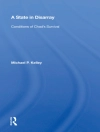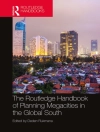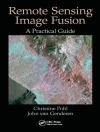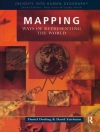This book provides an international perspective on teaching and learning geography in the primary classroom. It describes the essence of primary school geography and identifies the ‘big ideas’, thereby offering a synthesis of the international geography curricula and classroom profiles against these big ideas. Each chapter discusses current and new research on a set topic, yet a common thread running between chapters is the assessment relevant to that particular topic. By providing a portrait of the central concepts, the essential skills and necessary inquiry processes of a primary geography education, the book will be of interest to education researchers, classroom teachers and the pre-service teacher, curriculum writers and policy writers.
Table des matières
Chapter 1. Defining Geography in the Primary School: Classroom experiences and understandings.- Part A: Interconnections and Understandings.- Chapter 2. The integrated nature of Geography education in German and Australian primary schools.- Chapter 3. Primary Geography for a Sustainable Future.- Chapter 4. Cultural Perspectives in Primary Geography.- Chapter 5. Conceptual change and primary geography.- Chapter 6. Geographical question typologies: Student-generated questions.- Part II: Experiencing and Visualising.- Chapter 7. Inquiry-based practices in primary school Geography.- Chapter 8. Fieldwork in Primary Geography: Australia.- Chapter 9. Spatial thinking in primary geography.- Chapter 10. The role of geography in facilitating learners’ digital competence.- Chapter 11. Big ideas and Consequences.
A propos de l’auteur
Gillian Kidman is the Co-Editor of the journal International Research in Geographical and Environmental Education (IRGEE). Gillian holds the following international leadership positions: Australian Representative – Steering Committee, International Geographical Union-Commission Geographical Education (IGU-CGE); Group Leader – Sub-Committee for Diversifying Research, (IGU-CGE); President of International Organisation for Science and Technology Education (IOSTE), is on the Board of Directors for Australasian Science Education Research Association (ASERA).
Gillian has research and teaching interests in the sciences and humanities and is particularly interested in inquiry forms of teaching and learning and the potential inquiry pedagogies have for the integration of science with other disciplines. Gillian’s latest co-authored book is Inquiry-based teaching and learning across disciplines: Comparative theory and practice in schools, and she currently has the book Disciplinarity and Educational Inquiry: conceptions and practices under contract.
Daniela Schmeinck is Professor for Primary Science and Social Sciences at the University of Cologne and Executive Director of the Institute for Primary Science and Social Sciences, University of Cologne. Schmeinck is a member of the steering committee for the International Geographic Union – Commission on Geography Education (IGU-CGE) and Review Editor of the journal International Research in Geographical and Environmental Education (IRGEE). She is Vice-president of the European Association of Geographers (EUROGEO) and Director of Cologne Digital-Earth Centre of Excellence.
Schmeinck has research and teaching interests in science and social sciences and is particularly interested in research on conceptual change and on the impact of digital technologies on teaching and learning in Primary School.












